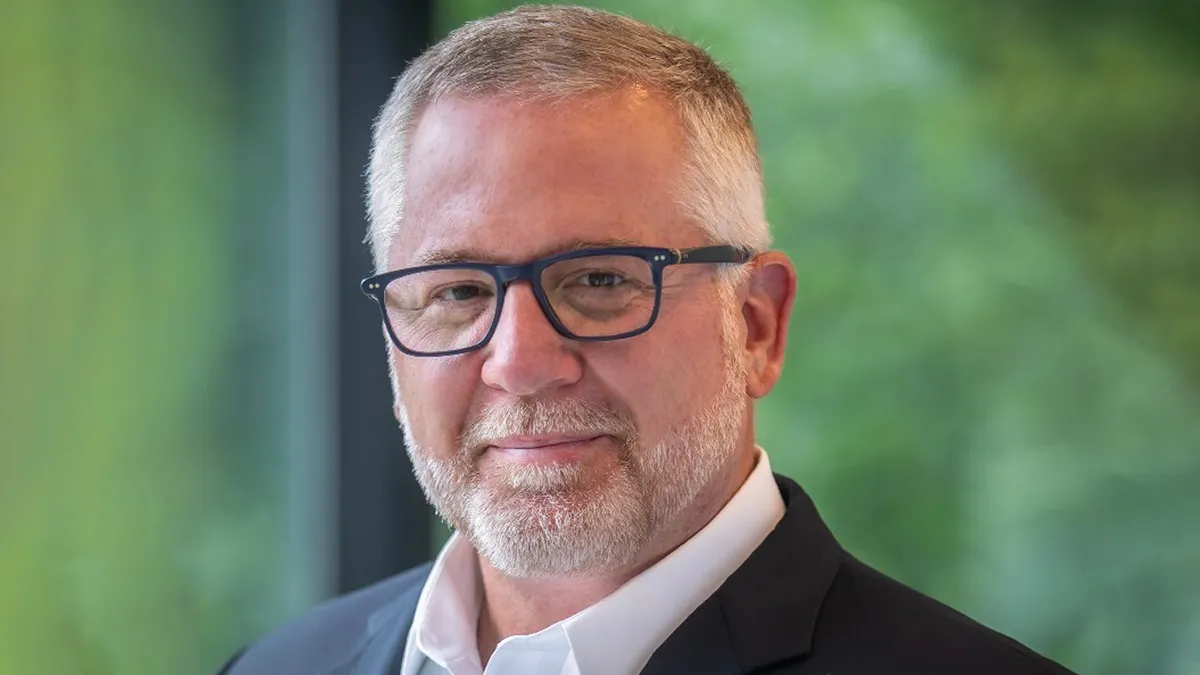After decades being known for its work in the reproductive health space, Ferring Pharmaceuticals has spent the past year expanding its focus and reach after the approval of two “firsts” in high-profile areas: gene therapy and the microbiome.
The privately held Swiss company scored two big FDA approvals at the tail end of 2022. There was the recurrent Clostridioides difficile (C. diff) treatment Rebyota, which became the first FDA-approved fecal microbiota product. A few weeks later came the nod for the vector-based gene therapy Adstiladrin, the first approved for bladder cancer.
Despite these two new products, Ferring’s current late-stage pipeline is otherwise focused on reproductive medicine and maternal health. According to Ferring’s U.S. president Brent Ragans, Rebyota and Adstiladrin — and their corresponding therapeutic areas — aren’t a pivot away from those areas, but rather a broadening of focus.
“I think strategically, it’s a broadening. It gives us two new, innovative platforms to develop,” he said.
First is the microbiome platform, which Ragans said is initially focused on gastroenterology and recurrent C. diff infection. Earlier this month, Ferring announced a research and development collaboration with Zürich-based microbiome translation company PharmaBiome to develop new microbiome-based therapeutics in gastroenterology.
"This is not about the next quarter or the next month. This is really about building a sustainable company that is committed to developing these life-changing therapies."

Brent Ragans
U.S. president, Ferring Pharmaceuticals
However, Ragans said the microbiome “extends far beyond the initial proof of concept indication” for Rebyota, with potential future focus areas for Ferring in the vaginal microbiome and “applications as adjunctive therapy, potentially in different types of cancer.”
Similarly, Ragans called Adstiladrin a “beachhead in uro-oncology” for Ferring.
PharmaVoice spoke with Ragans about Ferring’s expanded strategy for new products and its ongoing focus on maternal and reproductive health.
This interview has been edited for brevity and style.
PHARMAVOICE: How is Ferring continuing its reproductive health focus?
BRENT RAGANS: We are steadfastly committed to reproductive medicine. Our products are in over 100 countries, so this is an area that is of continuous interest for us. We continue to develop better therapies [and] a broader portfolio in what is already a very complete portfolio for most stages of IVF and infertility care.
But as we look to the future, we will continue to invest in this new research. For example, male infertility is an area that has had very little attention, and male factor infertility represents, as you might expect, about 50% of the infertility patients in the country. We’ve begun some trials in this area for idiopathic infertility with men and improving sperm quality.
On the other side, I would say it is about things that are unrelated to just innovating therapies. We consider ourselves the leader in reproductive medicine. It's important for us to continue to innovate in areas beyond just the therapeutic. So for example, things like Fertility Out Loud, which is helping people navigate their family-building journey. This is really a program that has nothing to do with brands and was launched in conjunction with Resolve: The National Infertility Association. It’s a social community platform for aspiring parents to speak out, to get information, to learn and to support them through their journey.
Can you talk about the commercialization strategies for Rebyota and Adstiladrin?
We launched [Rebyota] right around a year ago. Really, the commercialization strategy was very much about education and access at the beginning, and continues to be to some extent. Any time you’re first in an orphan indication there's a whole lot of simply educating the community. We spent a lot of the first part of last year and into the middle of last year doing just that and ensuring reimbursement and access to care was there, as well as educating the provider network. Today, we have much more focus, both in institutional and hospital settings as well as in community practices, of what I would call a more traditional commercial approach.
For Adstiladrin, the manufacturing of gene therapy-based products is not simple, and in and of itself is high risk. So while we did receive approval last year, this was not made commercially available to patients until the end of the third quarter of 2023. So it's still quite early in the game. Our commercial approach has been very much to focus specifically on urologists and uro-oncologists who are treating these patients.
How has the reimbursement landscape been for those products?
The good news for us on Adstiladrin is in the intervening period between approval and making the product commercially available … because it was included in the NCCN guidelines, we've been able — both commercially as well as from a Medicare viewpoint — to establish very strong reimbursement from launch.
With Rebyota it took a little more time. But today I would say yes, we have both the commercial as well as Medicare's support of this product in a good way.
These were both firsts following fast-track and breakthrough indications, so as one would expect, making those available to patients who are clearly in need is a priority for us, and I think we've been able to accomplish that.
How has being a private company worked to Ferring’s advantage with these and other products?
As a privately owned biopharmaceutical company, it does enable us to do things that we otherwise wouldn't be able to necessarily do and to pursue therapeutic areas for development projects that may take longer than the market might tolerate for a publicly traded company.
Adstiladrin had several setbacks. It was not approved the first time around, and we had lots of work to do to get this product, from a CMC [chemistry, manufacturing and controls] standpoint, ready for market. So I think we have a very current example where other [companies] may not have elected to continue. But we have this relentlessness and this long-term view. This is not about the next quarter or the next month. This is really about building a sustainable company that is committed to developing these life-changing therapies.



















